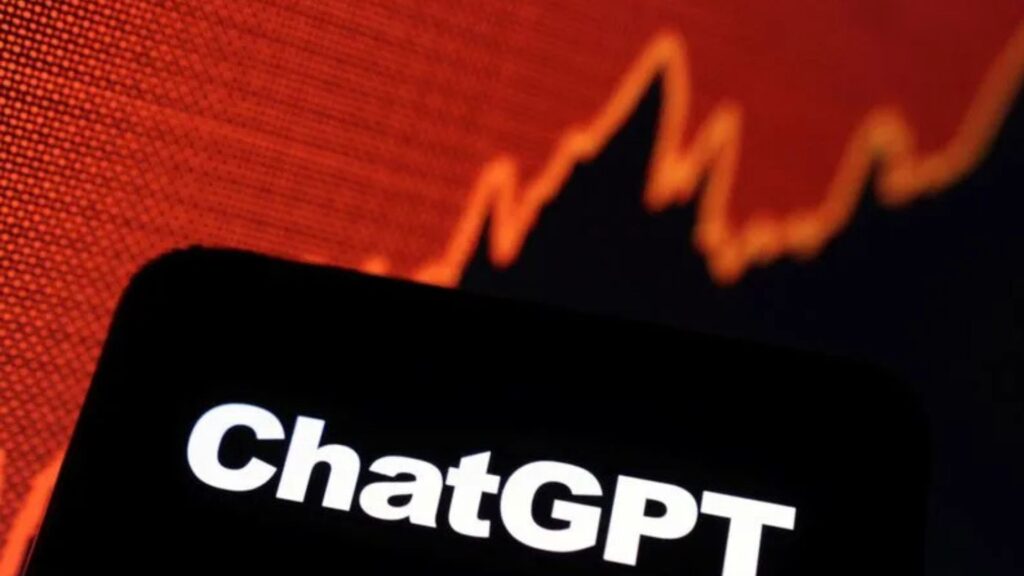Retail investors are increasingly turning to artificial intelligence chatbots for stock selection, driving an explosive 600% surge in the robo-advisory market that industry analysts predict will reach $470.91 billion in revenues by 2029, up from $61.75 billion last year.
As ChatGPT approaches its third anniversary in November, at least 13% of retail investors are already using the popular chatbot to pick stocks, while an additional 50% say they would consider using AI tools for investment decisions, according to a survey of 11,000 global retail investors by broker eToro. The phenomenon has democratized investment analysis that was once exclusive to large financial institutions and professional investors.
Former Wall Street Analysts Lead AI Adoption

Jeremy Leung, who spent nearly two decades analyzing companies at UBS, exemplifies this trend after losing his position at the Swiss bank earlier this year. Without access to expensive Bloomberg terminals and premium market data services, Leung has turned to ChatGPT for his multi-asset investment portfolio.
“Even the simple ChatGPT tool can do a lot and replicate a lot of the workflows that I used to do,” Leung said, though he cautioned that such tools might miss crucial analyses since they cannot access data behind paywalls. Bloomberg terminals typically cost around $25,000 per user per year, making them prohibitively expensive for individual investors.
To maximize ChatGPT’s effectiveness, Leung creates specific prompts like “assume you’re a short analyst, what is the short thesis for this stock?” and instructs the AI to “use only credible sources, such as SEC filings”. His approach reflects a growing sophistication among AI-assisted investors who understand the technology’s limitations while leveraging its analytical capabilities.
AI Portfolio Outperforms Traditional Funds
The practical results have been striking. When comparative firm Finder asked ChatGPT in March 2023 to select stocks from high-quality businesses based on criteria such as debt levels, sustained growth, and competitive advantages, the resulting 38-stock portfolio has surged nearly 55%. The selection, which includes AI leader Nvidia and e-commerce giant Amazon alongside consumer staples like Procter & Gamble and Walmart, has outperformed the average of the UK’s 10 most popular funds by almost 19 percentage points.
The success comes as U.S. stocks hover near record highs, with the S&P 500 adding 13% this year after surging 23% in 2024. However, experts warn that this performance may not be sustainable in all market conditions.
Industry Warnings About High-Risk Strategy
Despite the impressive results, financial industry professionals caution that AI-driven stock picking carries significant risks. Dan Moczulski, UK managing director at eToro, which boasts 30 million users worldwide, warns that “the risk comes when people treat generic models like ChatGPT or Gemini as crystal balls”.
Moczulski advocates for using AI platforms specifically trained to analyze markets, noting that “general AI models can misquote figures and dates, lean too hard on a pre-established narrative, and overly rely on past price action to attempt to predict the future”. The executive, who joined eToro in 2021 after leading roles at Star Financial Systems and IG Group, brings extensive experience in online investment platforms to his assessment of AI risks.
Even ChatGPT itself warns users not to rely on it for professional financial advice, and its parent company OpenAI has not released data on how many people use the chatbot for investment decisions. The enthusiasm for AI tools has raised concerns about whether retail investors are employing adequate risk management strategies to protect against potential losses during market downturns.
Broader Market Context and AI Investment Boom
The surge in AI-assisted retail investing occurs amid broader concerns about an AI investment bubble. Meta CEO Mark Zuckerberg and OpenAI’s Sam Altman have both warned about potential risks from excessive enthusiasm in AI investments. Despite these warnings, Wells Fargo’s chief equity strategist Ohsung Kwon advises investors not to fade the AI trade, arguing that if AI becomes a bubble, investors “want to be on the right side of that”.
The robo-advisory market expansion reflects the democratization of sophisticated financial tools previously available only to institutional investors. AI trading tools that analyze vast amounts of data and build portfolios are already transforming Wall Street, but their increasing availability to retail investors promises to create seismic changes in the entire stock market.
Technical Limitations and Risk Management
Research indicates that AI models exhibit several concerning biases when providing investment advice. A University of St. Gallen study found that large language models consistently recommend portfolios with higher risks than benchmark index funds, showing preferences for U.S. stocks (93% versus 59% in benchmarks), technology sectors, and recently popular stocks. The study revealed that AI models often suggest actively managed investments with higher fees rather than low-cost index funds.
Additionally, AI systems cannot access premium financial data behind paywalls, potentially missing critical market analyses available through expensive services like Bloomberg terminals. This limitation means that while AI democratizes basic investment analysis, it may not replicate the comprehensive research capabilities of professional investors with access to institutional-grade data services.
Future Outlook
The convergence of artificial intelligence and retail investing represents a fundamental shift in how individual investors access market analysis and make investment decisions. While early results show promise, with AI-selected portfolios outperforming traditional funds, the technology’s limitations and potential risks require careful consideration.
As the robo-advisory market continues its explosive growth toward the projected $470.91 billion by 2029, retail investors must balance the democratizing benefits of AI tools with prudent risk management practices. The challenge lies in harnessing AI’s analytical power while avoiding overreliance on technology that, despite its sophistication, cannot fully replace human judgment and professional financial oversight in navigating complex market conditions.












